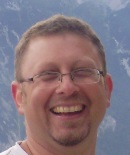
Myth Debunked That OCD Is Associated With High IQ
Myth Debunked That OCD Is Associated With High IQ
September 19, 2017
Press Releases, Social Sciences & Humanities
Obsessive-compulsive disorder (OCD) is not associated with a higher intelligence quotient (IQ), a myth popularized by Sigmund Freud, according to researchers at Ben-Gurion University of the Negev (BGU), Texas State University and University of North Carolina at Chapel Hill.
The study, published in the Neuropsychology Review, is believed to be the first analysis of existing data on the link between IQ and OCD sufferers verses the general population. The authors tracked the origins of the myth to the French philosopher, physician and psychologist Pierre Janet in 1903, but it was Freud, the father of psychoanalysis, who popularized the hypothesis in 1909.
“Although this myth was never studied empirically until now, it is still a widely held belief among mental-health professionals, OCD sufferers and the general public,” says Dr. Gideon Anholt, a senior lecturer in BGU’s Department of Psychology.
The researchers conducted a meta-analysis of all the available literature on IQ in OCD samples versus non-psychiatric controls (98 studies), and found that contrary to the prevailing myth, OCD is not associated with superior IQ, but with normative IQ that is slightly lower compared to control samples. The authors suggested that the small reduction in IQ scores in OCD sufferers may be largely attributed to OCD-related slowness and not to intellectual ability.
The popular misconception about OCD has been further promoted by TV programs like “Monk,” which show an individual with OCD using his superior intelligence to solve challenging mysteries. Yet, such beliefs about OCD may facilitate the misconception that there are advantages associated with the disorder, potentially decreasing one’s motivation to seek professional help.
“Future IQ assessments of individuals with OCD should focus on verbal and not performance IQ – a score heavily influenced by slowness,” the researchers say.
The research team also included Dr. Amitai Abromovich, Texas State University; Sagi Raveh-Gottfried, psychology department, BGU; Dr. Jonathan S. Abramowitz, University of North Carolina at Chapel Hill; and Naama Hamo, Ruppin Academic Center, Israel.
ABOUT AMERICANS FOR BEN-GURION UNIVERSITY
By supporting a world-class academic institution that not only nurtures the Negev, but also shares its expertise locally and globally, Americans for Ben-Gurion University engages a community of Americans who are committed to improving the world. David Ben-Gurion envisioned that Israel’s future would be forged in the Negev. The cutting-edge research carried out at Ben-Gurion University drives that vision by sustaining a desert Silicon Valley, with the “Stanford of the Negev” at its center. The Americans for Ben-Gurion University movement supports a 21st century unifying vision for Israel by rallying around BGU’s remarkable work and role as an apolitical beacon of light in the Negev desert.
About Ben-Gurion University of the Negev
Ben-Gurion University of the Negev embraces the endless potential we have as individuals and as a commonality to adapt and to thrive in changing environments. Inspired by our location in the desert, we aim to discover, to create, and to develop solutions to dynamic challenges, to pose questions that have yet to be asked, and to push beyond the boundaries of the commonly accepted and possible.
We are proud to be a central force for inclusion, diversity and innovation in Israel, and we strive to extend the Negev’s potential and our entrepreneurial spirit throughout the world. For example, the multi-disciplinary School for Sustainability and Climate Change at BGU leverages over 50 years of expertise on living and thriving in the desert into scalable solutions for people everywhere.
BGU at a glance:
20,000 students | 800 senior faculty | 3 campuses | 6 faculties: humanities & social sciences, health sciences, engineering sciences, natural sciences, business & management, and desert research.
For all press inquiries, please contact:
James Fattal, J Cubed Communications
516.289.1496




